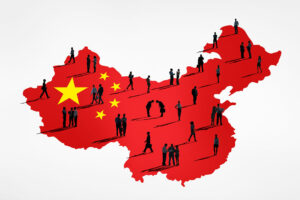What if China invaded the Philippines?
Recently, the magazine The Diplomat (June 2024) found that “76% of the 1,200 respondents polled on March 11-14 said that they saw China as the ‘greatest threat’ to the Philippines. This compared to just 9% for Russia, which was viewed as the country’s second biggest threat, followed by minuscule proportions of respondents who chose North […]

Recently, the magazine The Diplomat (June 2024) found that “76% of the 1,200 respondents polled on March 11-14 said that they saw China as the ‘greatest threat’ to the Philippines. This compared to just 9% for Russia, which was viewed as the country’s second biggest threat, followed by minuscule proportions of respondents who chose North Korea, Pakistan, and Japan.” The survey also found “that 91% of respondents said they “distrust” China, up from 58% at the start of the Marcos administration.”
Unfortunately, a March 2024 survey saw only 77% of Filipinos willing to defend the country. This perhaps can be connected to a recent AidData report (“Investing in Narratives: How Beijing promotes its development projects in the Philippines”), which found China resorting to employing thousands of troll accounts, PRC-sponsored journalist training in China “to socialize Filipino journalists to Beijing’s perspectives,” as well as heavy reliance on mainstream and social media. China’s objectives circled around three main narratives around its “development financing in the Philippines: cooperation with the PRC is win-win, its rise is inevitable, and Asia should be led by Asians.” China’s propaganda thus “emphasizes its investments, focusing on infrastructure projects and their economic benefits.”
Hence, this need to perhaps discuss what are the stakes for Filipinos. What would be the possible consequences for life in the Philippines should a Chinese invasion take place? The best way perhaps to find out how an invading Chinese government would treat Filipinos is to see how they treat their own.
ON FREEDOM OF RELIGION
China pursues a policy of “Sinicization,” in that it requires religious groups to align their doctrines, customs and morality with Chinese culture. This particularly “affects so-called ‘foreign’ religions — including Islam as well as Catholicism and Protestantism — whose adherents are expected to prioritize Chinese traditions and show loyalty to the state.”
Sinicization takes sinister forms: “Authorities have removed crosses from churches and demolished the domes and minarets of mosques to make them look more Chinese.” The Bible and Quran have been edited to have the teachings therein “align with ‘Chinese culture in the new era’.” Finally, “children under 18 are constitutionally prohibited from having any formal religious affiliation in China. There is also a ban on religious education, including Sunday schools, religious summer camps and other forms of youth religious groups. Schools focus on promoting non-religion and atheism, and many children join CCP-affiliated youth groups, where they must pledge commitment to atheism.” (All this from “10 things to know about China’s policies on religion,” Pew Research Center, 2023)
ON HOMOSEXUALITY
Chinese culture emphasizes procreation and the raising of children, and “not doing so is considered by many a social transgression.” As a consequence, “a considerable number of mental health professionals in China still consider homosexuality a disorder that should be treatable by sexual orientation conversion efforts (SOCE).” But China’s society itself is geared against homosexuality. As example, when heterosexual participants were asked about the acceptance of their own children being bisexual, 25.1% indicated rejection, Furthermore, “more than 10% of heterosexual participants rejected the idea of being close (in terms of relationships) to LGBT people and did not believe bisexual (6%), homosexual (8·2%), or transgender (21.9%) people should be allowed to raise children.” (“Discrimination against LGBT populations in China,” Yuanyuan Wang, et al, 2019)
ON EDUCATION
Not surprisingly, the “current command and control system used by the National Government limits university autonomy and has created many problems, including a lack of scientific innovation, a widening poverty gap in terms of access to higher education, and a mismatch between supply and demand in the labor market.” (“Challenges for the government-controlled higher education system in China,” Chengqi Xia, 2023)
ON BUSINESS
“Under Mr. Xi’s leadership, China is returning to its roots: a state-controlled economy that demands businesses conform to the aims of the Chinese Communist Party. Many of Mr. Xi’s hallmark policies, favoring state prerogatives over pro-business, free-market
changes, have had an arresting influence on the economy.”
Consequently, the “shift in the business climate has been stark. Internet companies, once idolized as champions for China on the world stage, are now fenced in by government agencies. Billionaire tycoons, including Jack Ma, the founder of Alibaba, have been driven underground or imprisoned after criticizing the government.” (“In Xi’s China, the Business of Business is State-Controlled,” New York Times, 2022)
ON CORRUPTION
Perhaps it will surprise no one but with such huge amount of State control, then China’s level of “corruption has been on the rise in recent decades. The public investigation and prosecution of corruption at such a scale occurred against the backdrop of widening inequality within China. This was not a mere coincidental correlation. Inequality in China, especially that within cities, soared after the reforms of the 1980s and then surged even more after the privatization and restructuring of many state-owned enterprises in the early 1990s.” (“How Corruption Fuels Inequality in China,” Foreign Affairs, 2024)
FREEDOM OF SPEECH
China’s penchant for censorship seems to have no bounds. However, one interesting recent development is that “Chinese authorities, recognizing in recent years that limited freedom of expression enables the government to better monitor potentially problematic social issues (referred to as ‘![]() ’) have begun to tolerate criticism, but only from certain categories of people, a kind of ‘free-speech elite,” and only then in government-controlled forums.” This group is composed of “senior government and Communist Party leaders, those with the patronage of such leaders and, to a lesser extent, academics and journalism professionals.” (“Freedom of Expression in China: A Privilege, Not a Right,” Congressional-Executive Commission on China)
’) have begun to tolerate criticism, but only from certain categories of people, a kind of ‘free-speech elite,” and only then in government-controlled forums.” This group is composed of “senior government and Communist Party leaders, those with the patronage of such leaders and, to a lesser extent, academics and journalism professionals.” (“Freedom of Expression in China: A Privilege, Not a Right,” Congressional-Executive Commission on China)
ON HUMAN RIGHTS
This is perhaps the area that would be most important for Filipinos to understand: China’s adherence to human rights is perhaps amongst the most appalling in the world. From its treatment of the Uighurs to the fact that the worst genocide in history was not by Hitler or Stalin but by Mao Zedong’s Great Leap Forward, which resulted in the murder of 45 million of his own people.
But “communist China has adopted other methods of suppressing the growth of the individual by attacking three bedrock institutions of society; namely, the family, the school, and free speech. In 1980, communist China announced a ‘one child’ policy to prevent a population ‘crisis’. Chinese families were limited to only one child or faced severe penalties.
Then there’s abortion: “throughout the 35 years of the one-child policy, there were a recorded 196 million sterilizations and 336 million abortions. (That 336 million figure is greater than the entire population of the United States).” (“How Beijing Controls Chinese Citizens Through Family, Education, and Speech,” The Heritage Foundation, 2019)
The foregoing, albeit sporadic, hopefully provided a sufficient snapshot of what life would be like under an invading Chinese regime. In a recent 60 Minutes segment on the West Philippine Sea, Defense Secretary Gilberto Teodoro had this exchange:
Cecilia Vega: You’re talking about a rusty, old warship. How realistic is it to expect the United States to intervene over the fate of a warship like that?
Gilbert Teodoro: There are people in there, that is an outpost of Philippine sovereignty. So we’re not talking about a rusty, old vessel solely. We’re talking about a piece of Philippine territory in there.
That was the right answer. Our defense of territory is simply not merely about a number of rocks or waters. It ultimately boils down to defending our way of life.
Jemy Gatdula is the dean of UA&P Law, as well as a Philippine Judicial Academy law lecturer for constitutional philosophy and jurisprudence.
https://www.facebook.com/jigatdula/
Twitter @jemygatdula














